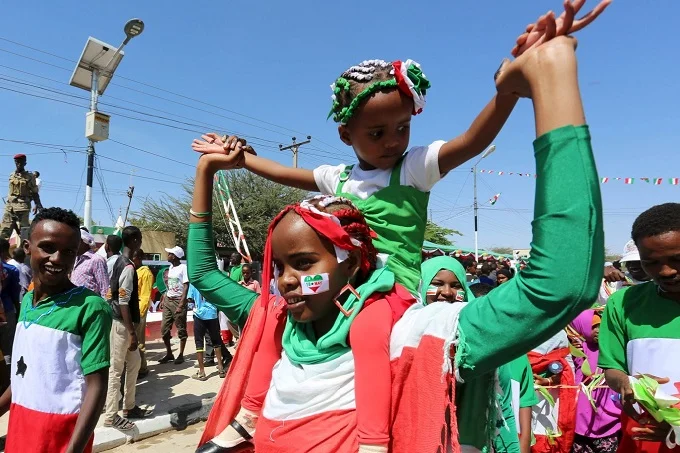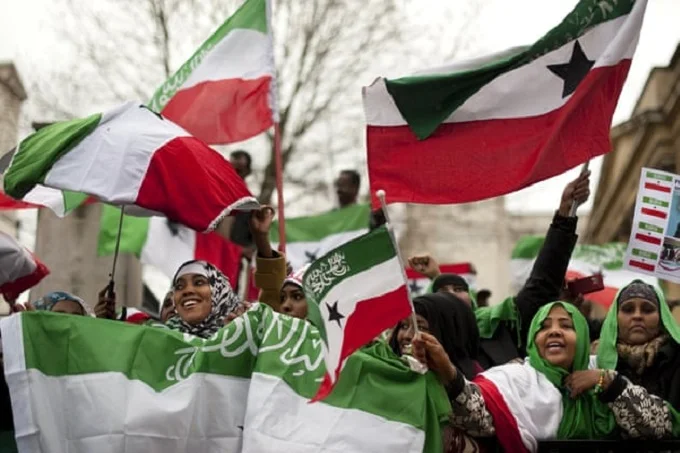Why is Somaliland not recognized?

The Republic of Somaliland is made up of the northernmost provinces of Somalia. Although it declared independence in 1991 and has effectively functioned as an independent state ever since, Somaliland is not officially recognized by any international actor. Understanding why is not easy, especially given that the country is much more stable and functional than the rest of Somalia and many other areas of the Horn of Africa.
Somaliland has practically all the characteristics of sovereign states: its currency, established borders, professional bureaucracy, and army, and the government of the capital Hargeisa has control of the territory.
The country can also sign international contracts, such as those with private companies, and has diplomatic relations with organizations such as the United Nations, the EU, and the Arab League, and some countries.
The country overlooks the Gulf of Aden and is between the territories of Djibouti, Ethiopia, and the other independent region of Somalia: Puntland, with which it has a dispute over the border. Therefore, the territory is extremely important for its strategic position along the routes of global trade and in the heart of a complicated region such as the Horn of Africa.
The fears behind the lack of recognition, therefore, concern the risk of destabilization of the area, despite Somaliland having very solid performances from a political and economic point of view.
Self-determination
The Republic of Somaliland declared independence in 1991, after the definitive fall of Siad Barre’s authoritarian regime. The Somali national unity project pursued by the general progressively crumbled due to the patronage and divisive policy that reinforced the fractures between clans and regions, which culminated in the collapse of the state apparatus in the 1990s. In the chaos of the civil war, the local authorities declared independence, creating the situation of limbo that continues today.
Somaliland’s current government is believed to be the natural successor to the old English protectorate over the region, which began in 1884 when London troops settled in the region. During the Second World War, Italy invaded Somaliland to annex it to its dominions. Still, British control was re-established in 1941, with the counter-offensive that expelled the Italian troops from the Horn of Africa.
In 1950 the English protectorate over Somaliland was restored. The so-called “Italian Somalia” was entrusted to Rome by the United Nations, dividing again the two-state entities unified during the war.
This is a period of self-government for the northern region, which is starting to take its present shape. Everything will change ten years later with the independence of Somalia in 1960, the result of the desire of the global powers to create a unitary Somali state in the region.
As Barre’s authority deteriorated, the national project was resumed by the Somali National Movement (SMN) supported by the Ethiopian Communist DERG government. The late 1980s saw harsh repression of the SMN by Barre’s army, but the collapse of his regime gave way to the rebels who became the sovereign authority of the northern region. Somaliland’s state-building process has been underway ever since, as has the weaving of its international relations.
Somaliland today has close (informal) political ties with the United Kingdom, Rwanda, Norway, Kenya, Ethiopia, Ireland, and the European Union. The country is now treated by many as a state, but recognition still seems far away.
Recognition problems
Officially, the international community recognizes Somaliland as an autonomous region of Somalia rather than as an independent state, de facto deeming it subject to the authority of the federal government of Mogadishu. In fact, there are many regional, continental and international interests contrary to the real recognition of the country, which does not refer to its internal situation as to the regional framework.
The change of borders is one of the most difficult dynamics of African politics. On the continent, colonial borders were maintained for fear that a chain reaction would be triggered that would detonate the various separatisms to the detriment of the independent states then in the consolidation phase. Remember, Eritrea and South Sudan have made few exceptions – and extremely particular dynamics have determined them.
The approach to Somaliland that many actors have follows this “classic” conception of African geopolitics. Recognizing Somaliland’s independence would give impetus to o ther separatisms in the region and the continent in general, an issue feared by many, especially in the context of Somalia and the Horn of Africa. Many analysts are convinced that this “Pandora’s box” effect is a partially unmotivated fear, but African heads of state prefer to accept the current status quo rather than risk a spiral of conflict.
Everyone fears a Balkanization of Somalia along the rifts between the regions and between the clans, with the risk of secession also of the provinces of Puntland and Jubaland. This disintegration of the country would also put regional powers such as Kenya and Ethiopia at risk, which fear the destabilization of their border areas inhabited by Somali populations.
In order not to create a dangerous precedent, the international community is basically waiting for the approval of Mogadishu so that it can present this independence as a negotiated separation similar to the Eritrean or Sudanese one. In the Somali case, however, this dynamic is far from reality.
The reasons for delaying independence can also be traced to the expectations of the African Union and other international actors regarding the government of Mogadishu. The construction and strengthening of a unitary Somali national state is, in fact, considered by many to be the solution to the internal chaos of the country, even if history has always denied this hypothesis.
Paradoxically, the recognition of Somaliland is also delayed by its good results in political and economic development. The risk of triggering a conflict between those in favor of and opposed to independence is holding back all the players interested in the stability of the area: the danger would be that of undermining a very successful reality, a very high price for recognition.
Political and economic development
According to some analysts, despite the lack of international recognition, Somaliland has the best democratic performance in the entire Horn of Africa, relatively far superior to the authoritarian regimes of the region or the chaos of southern Somalia. This would have been possible because the state has built its administrative bodies following the concepts of the Somali custom of “consent” and “consultation”.
The incorporation of customary norms into state institutions from below has allowed for better and easier control of the territory and bound the government with greater accountability. This has allowed Somaliland to be a relatively stable territory in a decidedly unstable area, with more solid democratic standards than those of its neighbors.
In its 29 years of existence, the country has seen periodic elections without obvious problems, the oppositions have not been persecuted, and the political plurality does not degenerate into violent conflict. The “social contract” between state and citizens is much stronger when the latter are able to recognize themselves in public authority.
From an economic point of view, Somaliland is also achieving satisfactory results. The main sector of the economy is livestock farming, significantly boosted by the ease that the country has in exporting. In fact, global trade routes pass through Somaliland, and its port of Berbera is so strategic that it was at the center of many disputes during the Cold War. This is helping the country’s private sector build fruitful relationships with other countries in Africa and the Middle East and with China and Western countries.

Remittances from residents who work abroad are also important for the country’s economy. Agriculture and the mining sector are seen as promising, particularly due to the alleged presence of gas and oil in the region. However, strengthening these sectors passes through cooperation with other countries, which are still largely hampered by the strange “non-existence” of the country.
Somaliland, therefore, appears to be a system capable of growing and strengthening if properly supported. However, institutional weaknesses remain, which, if international integration or economic stabilization slows down, would risk exploding.
Undermining the region’s development possibilities could be counterproductive for the international community, which risks sacrificing a virtuous context in order to pursue decidedly “old school” policies in a region where foreign intervention has so far been not very conclusive.




